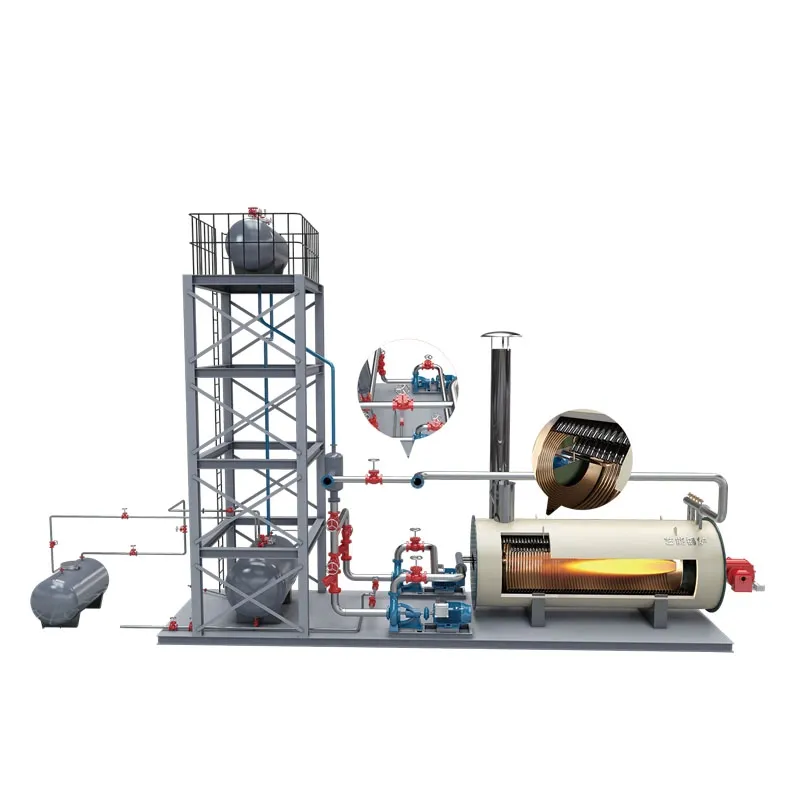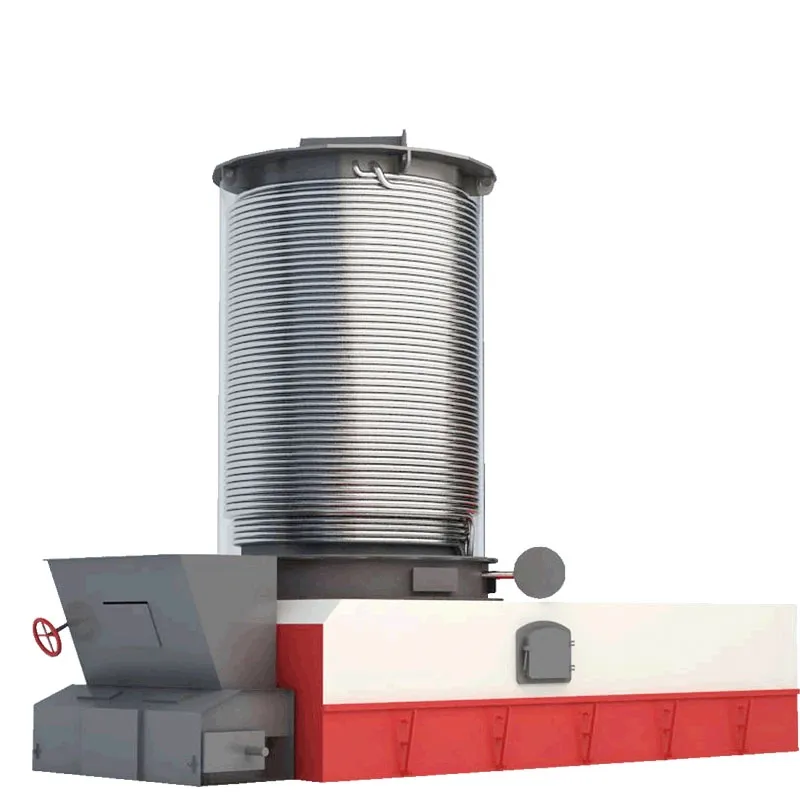thermal oil boiler
Understanding the intricacies of thermal oil boilers unlocks a world of energy-efficient potential, especially in industrial applications where managing heat transfer effectively can significantly impact operational costs. Having worked extensively with various thermal systems, I’ve noticed that thermal oil boilers, in particular, offer unparalleled advantages, including their ability to operate at high temperatures without the need for high pressure, providing a safer, more efficient solution for industrial heating.

The engineering behind thermal oil boilers is brilliantly straightforward yet complex enough to require expertise for effective implementation and management. These systems utilize a closed loop in which thermal fluid circulates from the boiler, through the process heat exchangers, and back again, efficiently transferring thermal energy. This process maintains a consistent temperature, minimizing energy loss and enhancing thermal efficiency, crucial for industries seeking to optimize production lines.
Professionals venturing into thermal oil boiler installation must understand the critical role of fluid dynamics in design and pump selection. Choosing high-quality, reliable thermal oils can make a significant difference in system longevity and effectiveness. As an expert, I recommend investing in synthetic thermal oils which typically have a higher boiling point and stability over a range of operating temperatures, reducing the risk of thermal degradation and extending service life.

Maintenance is another pillar of effective boiler management. Regular system checks and fluid analysis should be routine. In my experience, common issues such as thermal fluid degradation can lead to inefficiency and unscheduled downtime, but these can be mitigated with proactive maintenance protocols. Implementing regular checks ensures the system operates as per the design, delivering optimum performance.
thermal oil boiler
Utilizing advanced monitoring systems allowing for real-time diagnostics can further enhance efficiency and safety. Sophisticated control setups offer precise modulation of temperature and fluid flow, which not only maximizes energy efficiency but also enhances system safety, reducing the likelihood of operational mishaps. These systems should include alarms and automatic shutdown protocols to safeguard against potential failures.
The selection of a thermal oil boiler system should align closely with specific operational requirements. One should assess the temperature needs, heating load, and space constraints before settling on a system. The tailored nature of these installations requires consulting with a qualified thermal system engineer to ensure the right configuration meets thermal demands effectively and sustainably.
Finally, remaining compliant with safety and environmental regulations should always be a priority. Leading authorities in the industry recommend regular training for personnel who operate and maintain these systems to ensure safe and efficient functionality. Trust in the reliability of thermal oil boilers is built upon ongoing education and adherence to regulatory standards.
In conclusion, the deployment of thermal oil boilers represents a strategic element within modern industrial operations. Their ability to deliver high-temperature heating without the complications associated with pressurized systems stands as an unparalleled advantage. With proper expertise, sound maintenance, and cutting-edge technology integration, thermal oil boilers are positioned to offer sustainable, cost-effective solutions suitable for a diverse range of industrial applications.
-
Industrial Steam Boiler Corporation - Reliable Industrial Boiler Manufacturer & SupplierNewsJul.08,2025
-
High-Efficiency Steam Boiler Heat Exchanger Supplier & Factory Durable Products for IndustryNewsJul.08,2025
-
Premium Electric Steam Boiler Manufacturer Reliable Company & Factory SolutionsNewsJul.08,2025
-
Commercial Hot Water Boiler - Reliable Supplier & Factory Direct Price for Efficient Heating SolutionsNewsJul.07,2025
-
Top Hot Oil Boiler Manufacturer - Reliable Thermal Oil & Coal Fired Boiler Manufacturer ManufacturerNewsJul.07,2025
-
High-Efficiency Hotel Hot Water Boiler – Leading Exporters & Quotes for HotelsNewsJul.07,2025

